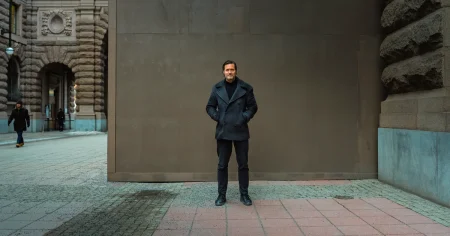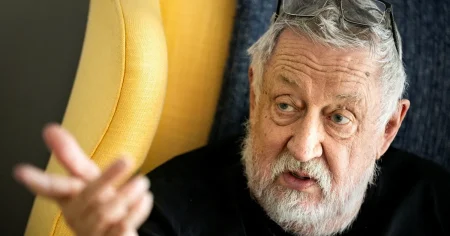A 23-year-old man from Småland, Sweden, stands accused of serious terrorism offences, including participation in and financing of the Islamic State (IS), a globally recognized terrorist organization. His parents, refugees from a war-torn country, reported him missing in June 2024, after he attempted to travel to Turkey, with the ultimate goal of reaching Ethiopia and Somalia. This wasn’t the first time their son had disappeared. Months earlier, he had vanished, only to be discovered later, detained in Ethiopia with a friend. Upon his return to Sweden, his father had implored him to appreciate the safety, education, and job opportunities he had been provided, emphasizing the stark contrast to the life they had left behind.
Despite his father’s pleas, the young man embarked on another attempt to travel to the Horn of Africa. He was apprehended by Swedish authorities at Arlanda Airport before he could board his flight to Turkey. He carried minimal luggage – just a backpack containing basic clothing items, cash, and sunglasses – raising suspicions about the true nature of his intended trip. A search of his phone uncovered disturbing content: images and videos linked to IS, including footage of jihadist preachers and executions. These digital discoveries solidified authorities’ concerns about his potential involvement with the terrorist group.
The Security Service (Säpo) believes that this intercepted journey, and the previous trip to Ethiopia, were part of a series of three attempts by the suspect to join IS. During the first trip, he and his friend, who is being investigated separately, reportedly met with two individuals with known ties to IS. One of these individuals is a recently convicted Dutch terrorist, while the other is a man from western Sweden with relatives who died fighting for IS. The suspect, however, maintains that the purpose of his travels was purely tourism. He claimed to be interested in seeing the ancient remains of Lucy, the australopithecine hominid, in Ethiopia, and a large camel market in Somalia, citing a general interest in history, including ancient empires like Rome, Greece, and Persia.
Beyond the attempted travels, the prosecution alleges that the 23-year-old procured Ethiopian e-visas for several individuals on behalf of IS, three of whom have connections to violent Islamism, according to Säpo. The suspect denies knowing these individuals and claims he was simply paid to obtain the visas for them. Further incriminating evidence comes in the form of 21 cryptocurrency transactions totaling 25,000 kronor, which Säpo has linked to IS fundraising campaigns. The suspect maintains that these were donations to charitable organizations aiding the poor, found through Google searches, and insists he was unaware of any connection to terrorism.
The prosecution has built a case based on the attempted journeys, the procurement of e-visas, the cryptocurrency transactions, and the disturbing material found on the suspect’s phone. This evidence paints a picture of a young man drawn to extremist ideology, actively seeking to join and support a terrorist organization. His seemingly flimsy explanations for his travels and financial transactions – wanting to see a camel market or donating to unknown charities found through Google – appear inconsistent with the evidence presented by investigators.
Despite the mounting evidence against him, the 23-year-old vehemently denies all charges. In interrogations, he claims to reject both jihadism and Sharia law, stating they are incompatible with modern society. His parents’ efforts to instill in him an appreciation for the peace and security he enjoys in Sweden seem to have been tragically unsuccessful. This case highlights the complexities of radicalization, the challenges of preventing young people from being drawn into extremist ideologies, and the devastating consequences that can follow. The trial will ultimately determine the validity of the charges and the fate of this young man.














